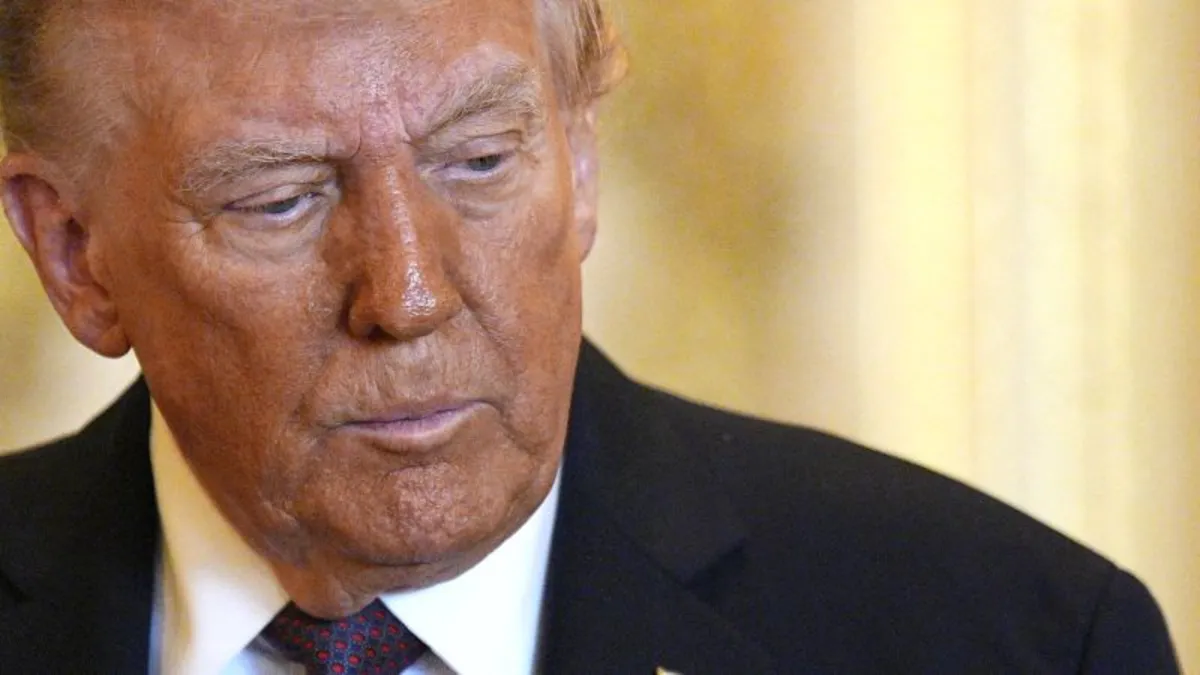
In a bold move, President Donald Trump announced early Thursday morning (UK time) via his Truth Social platform that he is designating the far-left anti-fascism movement, Antifa, as a terrorist organization. This announcement comes amidst ongoing tensions regarding political violence in the United States and raises questions about the implications of such a designation.
Trump's post stated, “I am pleased to inform our many U.S.A. Patriots that I am designating ANTIFA, A SICK, DANGEROUS, RADICAL LEFT DISASTER, AS A MAJOR TERRORIST ORGANIZATION.” He further emphasized the need for a thorough investigation into those funding Antifa, insisting that these investigations adhere to the highest legal standards. Trump thanked his followers for their attention to this significant matter.
A White House official confirmed to CNN that this move is part of a broader strategy to address left-wing organizations that allegedly fuel political violence. While Trump is currently overseas on a formal state visit, he signaled this potential designation earlier in the week following the murder of conservative activist Charlie Kirk. Following Kirk's assassination, administration officials have indicated their intent to target what they describe as a coordinated left-wing effort to incite violence.
The announcement has drawn protests from several Democrats, who argue that Trump is using this designation to create a pretext for cracking down on dissenting opinions. The practical effects of this designation remain unclear, as the potential legal ramifications for Antifa are ambiguous given its lack of a centralized structure or defined leadership.
Antifa, short for anti-fascists, encompasses a broad movement of individuals with political beliefs that often lean toward the far left but do not necessarily align with the Democratic Party. Unlike traditional organizations, Antifa does not have an official leader or headquarters, although various groups within certain states conduct regular meetings.
During his first term, Trump made similar vows to designate Antifa as a terrorist organization. His former attorney general, William Barr, previously stated that Antifa's activities constituted “domestic terrorism.” However, it’s important to note that while it is illegal to provide material support to foreign terrorist organizations, there is no equivalent law for domestic groups.
In addition to the designation of Antifa, Trump has also proposed revoking tax-exempt status for liberal non-profit organizations. His attorney general has hinted at the possibility of criminal charges against groups or individuals allegedly targeting conservatives. Trump remarked, “Antifa is terrible. There are other groups,” adding that some radical groups have evaded accountability for their actions.
Trump has expressed that he is discussing with Attorney General Pam Bondi the potential for bringing racketeering charges against left-wing groups that he claims are funding agitators. He stated, “I’ve asked Pam to look into that in terms of RICO, bringing RICO cases,” suggesting that he believes these groups should face significant legal repercussions for their actions against the nation.
This developing story will continue to unfold as more details emerge and as the implications of Trump's designation of Antifa are assessed in the coming days.